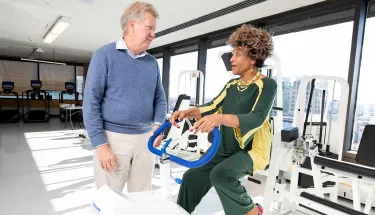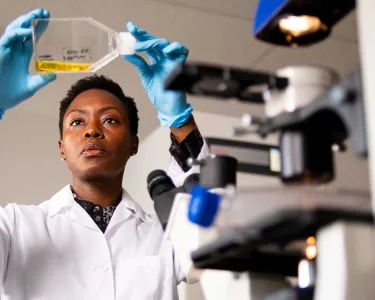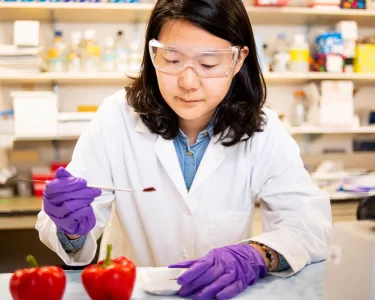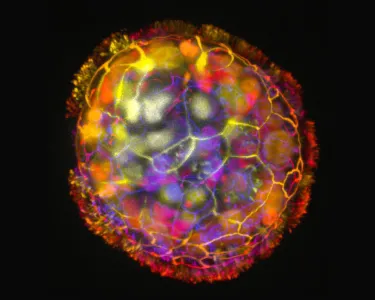Aging
Home to one of the world’s largest centers on the study of healthy aging, Tufts has experts using innovative research methods to increase knowledge about the aging process and improve the lives of older adults.
Discovering How We Get Older—and Stay Healthier Longer

Statistics
6
Number of NIH-funded clinical centers—the HNRCA at Tufts is one
3 x
Americans 100 years and older tripled between 1980 and 2024 (from 32,194 to 101K)
8296
Number of participants in HNRCA human research studies since 2019
77 M
Number of people older than 65 worldwide by 2034
Selected Research
By 2034, people aged 65 and older will outnumber those 18 and younger, according to population projections from the U.S. Census Bureau. That reality raises complex questions about public health, the economy, the workforce, and the not-yet-understood complexities of aging.
Researchers at Tufts are shedding new light on those complexities, helping to answer some of the most difficult aging-related questions we face, with potential benefits for populations worldwide.
The Jean Mayer USDA Human Nutrition Research Center on Aging, one of the largest centers in the world studying healthy aging, brings together more than 40 scientists working across a wide range of fields to study, for example, how exercise and nutrition accelerate or slow down the common biological processes of natural aging.
Experts at the center advance knowledge about: the heart; the eyes; the brain; our bones; cancer; metabolism, obesity, and diabetes; and other organs, systems, and diseases as they relate to aging.
Through its Healthy Aging Research Cluster, the center also partners with dozens of departments across the university:
- At the School of Arts and Sciences, DNA experts explore the mechanisms of growing older, while others examine the effects of senolytics (drugs that target cells linked to aging).
- Researchers in the School of Medicine’s Neuroscience Department investigate how we can keep our brains healthy as we age, focusing on information retrieval, stereotypes, and memory, and how nutrition might offset Alzheimer’s disease.
- Elsewhere in the School of Medicine, researchers consider ways to reduce the risk of dementia.
- At the School of Dental Medicine, scientists target the bacteria that cause periodontal disease, in the hopes of slowing the progress of Alzheimer’s, while looking for ways to keep aging mouths as healthy as younger ones.
- At Cummings School of Veterinary Medicine, researchers take a One Health approach to sarcopenia—age-related loss of muscle mass and strength—comparing human and canine muscle wasting to better understand both.
- Across disciplines, including at the School of Medicine and the Friedman School for Nutrition Science and Policy, experts probe the ways in which the heart and arteries change during the aging process and why women and men have different rates of cardiovascular disease.
And despite how extensive this cross-university engagement with research on aging is, it is only the beginning of the potential for the healthiest possible lifespans.








